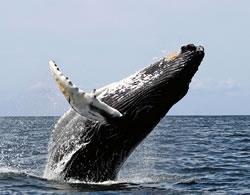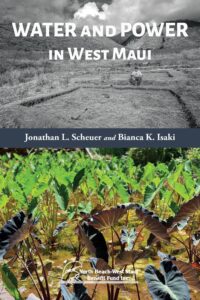BREAKING NEWS!
Posted 5/18/2025
An Exciting Argument!
Aloha Friends,
In our last newsy email, one of the items covered was sharing an upcoming Oral Argument before the Hawaii State Supreme Court. Several of our members were parties to a Petition challenging Governor Green’s Emergency Housing Proclamation (EP).
When this challenge began, the rampant use of EPs had not yet begun because it was prior to our current presidential administration. The following mp3 link will allow you to listen to the one hour Argument before the Supreme Court Justices. It was exciting! At the beginning of the Argument, the questions asked of our legal counsel, Lance Collins, Esq, made it seem that the Justices didn’t feel the Emergency Proclamation should be challenged.
For those of us who attended, it wasn’t long before we realized that was not the case. When you listen to the mp3 link below, you will be treated to a very eloquent and brilliant argument by Mr Collins as he responded to a barrage of questions from the justices. They were not pleased that the Governor chose to use a process designed for true emergencies to address what his own Proclamation said had been an housing shortage in Hawaii since 1935. The biggest problem with the EP is that is suspends so many State and County laws, supposedly to fast track affordable housing development. At least, that’s the hype. When the EP was carefully read, however, it actually would permit fast tracking for luxury development. The reality is that our State and County officials have perpetually watered down any attempt to require the building of affordable homes. Our own County has gone to the purchase of land, building tenement style housing which people can lease but never own. In 2020, Kauai passed an Ordinance that exempted developers who build in any of our town corridor areas the need to build any affordable housing. They also exempted developers who put condos or apartments – 10 units or more per acre from the need to build affordable. Why should any developer who builds on Kauai ever be exempt from affordable? The wisdom throughout the United States has been, for years, if you are building homes in a resort community, there has to be a legal requirement to force the construction of affordable homes because developers will always prefer to build those attracted who can afford luxury = maximizing the developers profit.
“In Kauai, town core developments are exempt from affordable housing requirements when they meet specific criteria, such as building to or beyond their allowed density with multifamily homes. Additionally, developments outside of the VDA (Village Development Area) and shoreline zones on land zoned R-10 or greater are also exempt, according to Luke Evslin. This means that developers in town cores and certain areas outside the VDA may be able to build projects without needing to include affordable housing units” Ordinance 1081, November 2020
The Governor’s EP was just another form of the same shell game, supposedly fast tracking the development of affordable but when the Proclamation is read carefully, as much as three quarters or more of everything built will be relieved of any requirement that it be affordable.
It is time for State and Local officials to put their action where their mouth is and insist that there be no more construction on the island until the 5,000 affordable home deficit on Kauai has been satisfied. The same standard should apply to every other island.
May 15, 2025 Hawaii State Supreme Court Hears Challenge to Governor’s EP
Thanks again to so many of you who have stepped up and sent donations. Please find the time to listen to the attached mp3 link. With questioning by the Justices was super and the sentiment they communicated to the AG is supportive of FOM’s position. While it is too early to tell for sure, it looks like we will be receiving a favorable Supreme Court Decision and Order. Our legal fees are significant and we do need your help. Donate Now or you can mail checks to our address below.
Mahalo nui,
Bridget Hammerquist, President
Friends of Maha`ulepu, a 501(c)(3)
Kia`i Wai o Wai`ale`ale, Co-founder
PO Box 1654
Koloa, HI 96756
Donate
friendsofmahaulepu.org
friendsofmahaulepu@hawaiiantel.net
(808) 742-1037 home
(808) 346-1973 cell
Posted 5/6/2025
When will State and County protect us from destructive irresponsible development?
Aloha All,
Our work continues. There have been some recent success: 1) On April 25, 2025, the Bill in the Legislature to secure tax payer supported funding for the Aloun Family Farms industrial dairy in Kaekaha failed. Thanks to all who wrote letters to our senator and representatives making clear that if an industrial dairy was objectionable in Koloa because of its odor, biting flies and loss of untreated cow manure to the environment. It would be equally objectionable and harmful to the environment and residents of Kekaha, 2) Our Petition to Revoke the Kauai County’s Development Permits for a 350 luxury room resort at the former Coco Palms site is on Appeal before the Interim Court of Appeal. Meanwhile, we aren’t stopping and continue to implore our State and local officials to stop the madness: (See the email below just sent), 3) On May 15, 2025, we will once again appear before Judge Watanabe asking for Summary Judgement that Pinkston violated the State and County conditions of development when he began work, excavation, rock crushing, grubbing, grading etc without the required prior protection and biological inspection for the endangered blind cave spider and amphipod, known to only exist in Koloa, Hawaii. Similarly, there was no biological inspection or protection for the Nene, Koloa Duck and other migratory sea birds who were known to nest on that site. We will send out more details on the hearing and Zoom link for those who want to attend or watch. 4) Finally, several of our members will appear at the upcoming oral argument before the Hawaii State Supreme Court, also occurring May 15, 2025. FOM supported members who challenged the Governor’s Emergency Housing Proclamation because it attempts to fast track the construction of homes without regulating the value of the homes constructed or requiring a percentage of homes to be truly affordable. In using his Emergency Proclamation Powers, the Governor attempts to fast track around normal County housing permit procedures. A very fundamental question is whether housing shortages have been ongoing for many years, not a true emergency and not one that justifies setting aside legislative and county laws. To learn more about this effort, soon to be heard before the Supreme Court of this State, see the following link. The first link provides a description of the case issued by the Supreme Court when the matter was calendared:
See below the information for watching the oral argument advanced by our legal team in person or YouTube, streaming live.
Supreme Court description for the case oral argument
Aloha!

Humpback whales are often seen breaching off the shores of Maha’ulepu during the winter months.
Friends of Maha’ulepu is comprised of a group of concerned citizens (local and beyond) who are contributing their time and talents to protect the natural beauty of this pristine coastal valley.
Maha’ulepu Beach is located on the South Shore of the Island of Kaua’i in the Hawaiian Islands, approximately 3 1/2 miles northeast of the town of Poi’pu. Poi’pu is one of the major visitor destinations on the island due to it’s beautiful beaches, swimming, snorkeling and surfing, sea turtles, whales, monk seals, trade winds, palm trees, and spectacular sunsets. Learn more about Friends of Maha’ulepu and the work we are doing!


